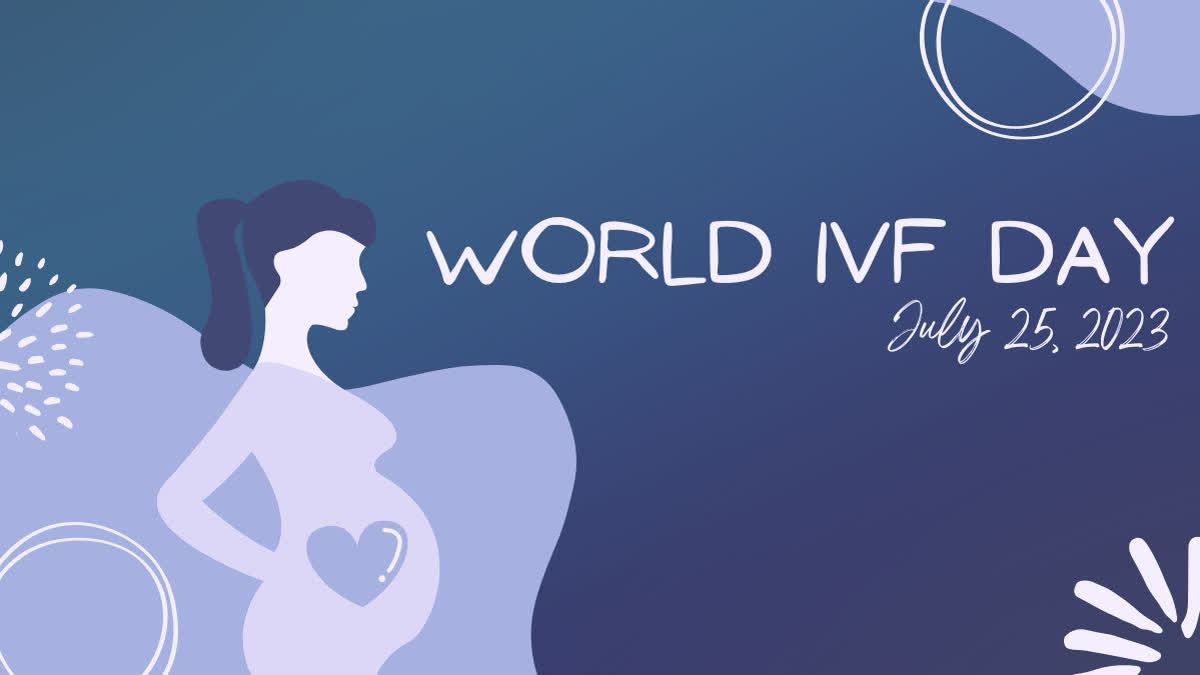Hyderabad: IVF (In vitro fertilization) fulfils the desire of having a child for millions of people around the world who are unable to conceive naturally due to several reasons. IVF is considered a revolution in the world of reproductive medicine, but there are many questions and misconceptions about it among the general public.
World IVF Day is observed every year on July 25 to increase public awareness about infertility and IVF, as well as to make people aware of the facts which debunk the misconceptions about it. This day is also observed as World Embryologist Day. IVF is considered one of the most amazing advancements in reproductive medicine, that has helped a large number of couples globally to fulfil their dream of having a child. According to various reports, currently, more than five million children have been born through IVF.
On November 10, 1977, a woman named Leslie Brown in England started the in vitro fertilization (IVF) process with the help of Dr Patrick Steptoe and Robert Edwards, after which the first test-tube baby, Louise Brown, was born on July 25, 1978. To mark this breakthrough, World IVF Day or World Embryologist Day is observed every year on July 25.
According to a recent World Health Organization report, 1 out of every 6 people worldwide is facing the problem of infertility. Estimates reveal that about 17.5 per cent of the total adult population is currently affected by infertility, which is a matter of concern. In such situations, IVF, or in vitro fertilization, provides a ray of hope for those who are not able to conceive not only in a natural way but also after adopting many other reproductive medical methods. Through IVF, women can become pregnant even if they are past their reproductive years, with infertile male partners, or suffering from other problems related to fertility.
Also read; World Brain Day 2023 - Brain Health and Disability: "Leave No One Behind"
In India, IVF centres are present in almost all cities, but usually, people refrain from consulting about it due to various confusions and social stigma. World IVF Day not just provides people with an opportunity to clear the misconceptions related to this method, but also provides a platform to make them more aware of it and discuss various issues related to this treatment. Apart from this, World IVF Day also allows for celebrating the birth of all the children who have been born through this process.
Infertility can occur due to several physical problems and many other reasons, in both men and women. According to doctors, if a woman below 35 years of age is not able to conceive even after having normal sex or having sex without any protection, or if a man is not able to produce enough strong sperm for pregnancy, then it can be termed as infertility or inability to conceive.
IVF or In Vitro Fertilization is an assisted reproductive technology which is also known as the 'Test Tube Baby' method. In this method, mature eggs are first collected from the ovaries, fertilized with sperm in the laboratory, and then the fertilized eggs (embryos) are transferred to the uterus. This whole cycle takes about three weeks.
Before doing IVF the couple is subjected to several tests and examinations such as for women, assessment of ovulation, examination of fallopian tubes, uterine cavity assessment and a basic hormonal profile, and for men, preliminary tests like semen analysis etc. Based on these, the process of their treatment is decided.
Currently, continuous progress is being witnessed in the field of this medicine. In our country, many modern methods are being used in the field of IVF, and the number of people adopting it is also increasing. But it is also important to understand that IVF is not successful in all cases i.e. this technique does not always have 100 per cent results and in some cases, it may also fail.



